- ホーム >
- MIYAGI UNIVERSITY
MIYAGI UNIVERSITY
The Exploration and Materialization of Hospitality and Amenity
【University Mission, University Policy】
University Mission
Living in a comfortable environment (amenities), and having heartwarming human relationships (hospitality), are wishes of all human beings. In order to realize communities with comforts and a heartwarming environment, Miyagi University explores the conditions and meanings of “hospitality” and “amenity”. Accordingly, MYU promotes education and research based on “advanced practical science”, integrating and unifying various disciplines and technologies in order to respond to demands of society.
University Policy
Miyagi University offers an education providing an opportunity to acquire “affluent humanity”, “advanced expertise”, and “reliable practical ability” based on advanced practical sciences. Based on these three elements, MYU expects students and graduates to use their global perspectives to contribute the development of society and communities. MYU promotes both academic and cultural progress, as well as encouraging construction of enriched and active local communities.
“Affluent humanity” is the ability to respect the thoughts and values of predecessors and others. Another aspect is being a good citizen by nurturing intelligence and sensibility.
“Advanced expertise” is the ability to overcome one’s own limitations through intellectual curiosity about various disciplines and technologies. It also incorporates ability to respond flexibly to the rapidly and unexpectedly changing society.
“Reliable practical ability” is the ability to use one’s own agency to think about problems based on a global perspective on the one hand and local communal attachment on the other, and then to materialize these ideas through strong will.
History
April 1997 Founding of Miyagi University School of Nursing and School of Project Design
April 2001 Establishment of Graduate School of Nursing and Graduate School of Project Design.
April 2005 Establishment of School of Food, Agricultural and Environmental Sciences.
April 2009 Establishment of Graduate School of Food, Agricultural and Environmental Sciences.
Schools and Departments
School of Nursing
Department of Nursing


The MYU Department of Nursing provides practical education designed for students to acquire essential basic skills and training in order to work as nursing professionals. Through their coursework, students develop not only the skills and knowledge of health care specialists, but equally important also develop high ethical standards and a rich humanity, displayed in the empathy and consideration of nursing professionals. The department also has two unique programs: International Nursing and Disaster Response Nursing to address recent social needs. Graduating students demonstrate leadership with systematically developed skills and critical thinking, contributing to the nursing and health care fields.
School of Project Design
The MYU School of Project Design has three departments: The Department of Business Planning, the Department of Regional Sciences, and the Department of Value-Creating Design.
Department of Business Planning
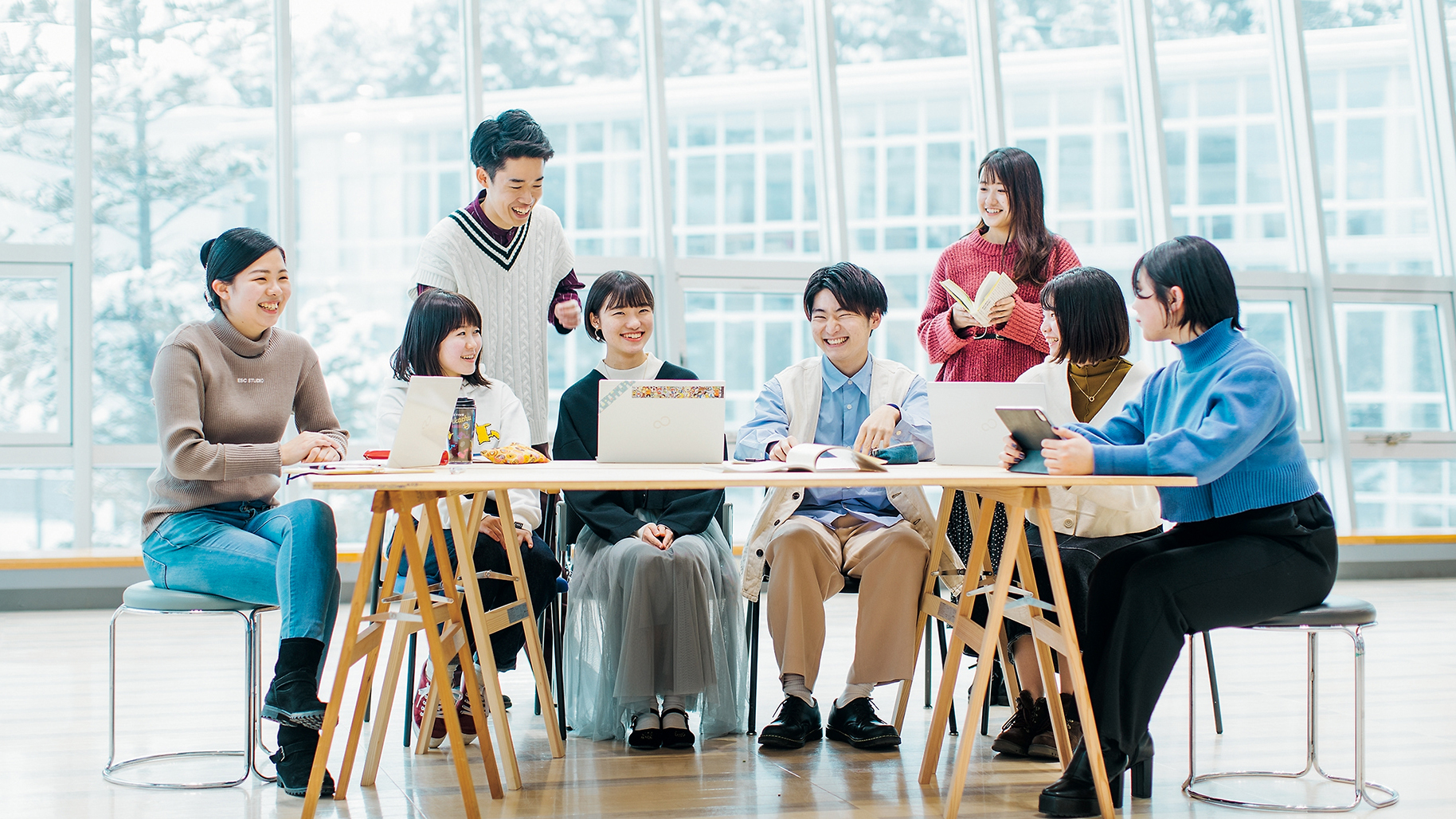

In a contemporary society where people's demands are diverse and rapidly changing, what kind of strategies do successful companies pursue? How do they manage and run their businesses? The Department of Business Planning focuses on investigating business logic and business thinking through case study analyses. Students obtain practical knowledge and analytical skills necessary to contribute to the business world and address social needs.
Department of Regional Sciences
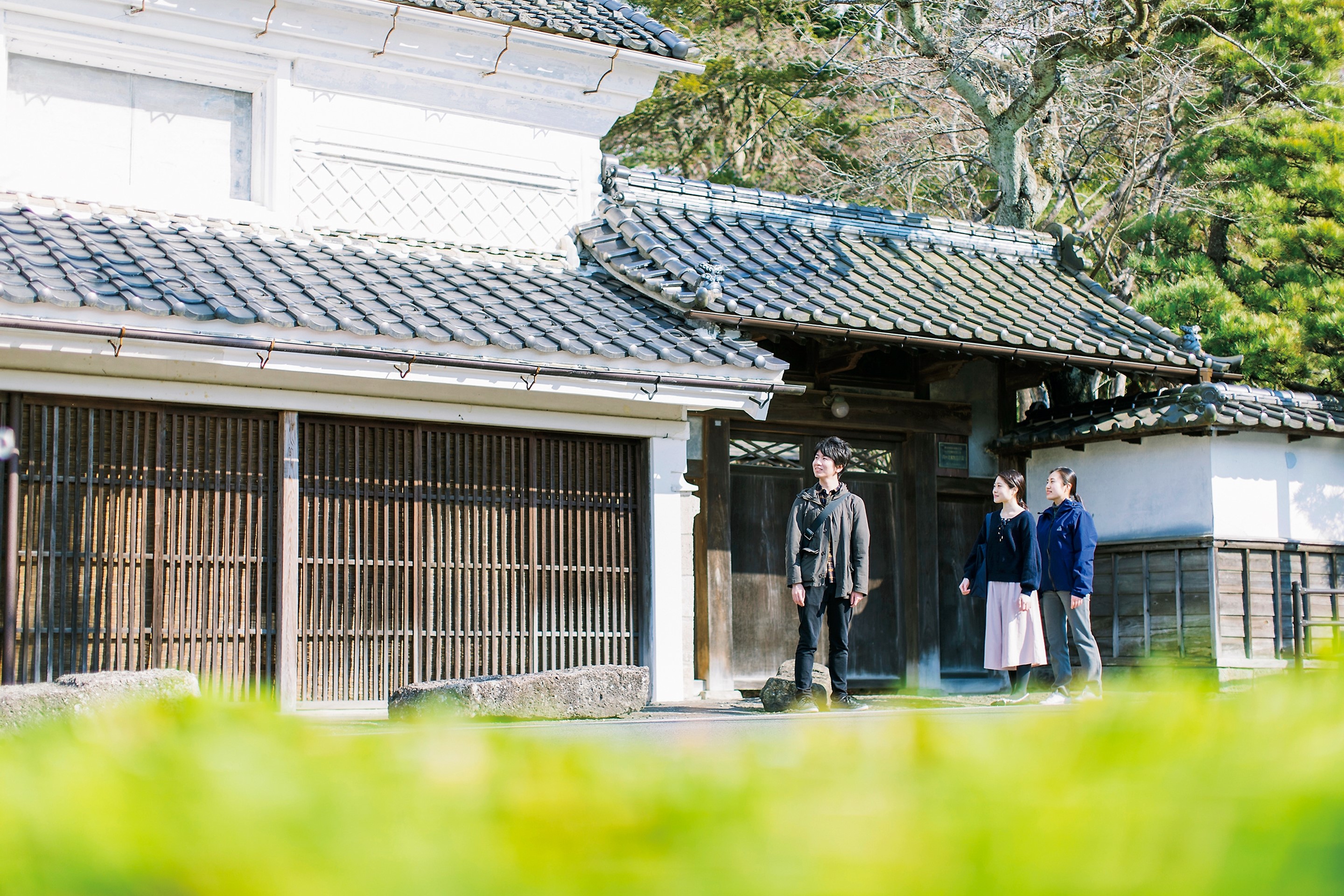

Nearly every local community in Japan is experiencing population decline, earthquakes, or other issues. The Department of Regional Sciences focusses on application of methods like local policy-making, cooperative community development, and community business to resolve such regional issues. The location of MYU in the heart of northeastern Japan with its chronic population problem and ongoing recovery from the 2011 Tohoku Earthquake, provides an important environment for understanding both theory and reality of regional sciences. Through coursework, students attain techniques to identify local needs and develop feasible plans. Graduating students are expected to show leadership in the revitalization of local communities.
Department of Value-Creating Design
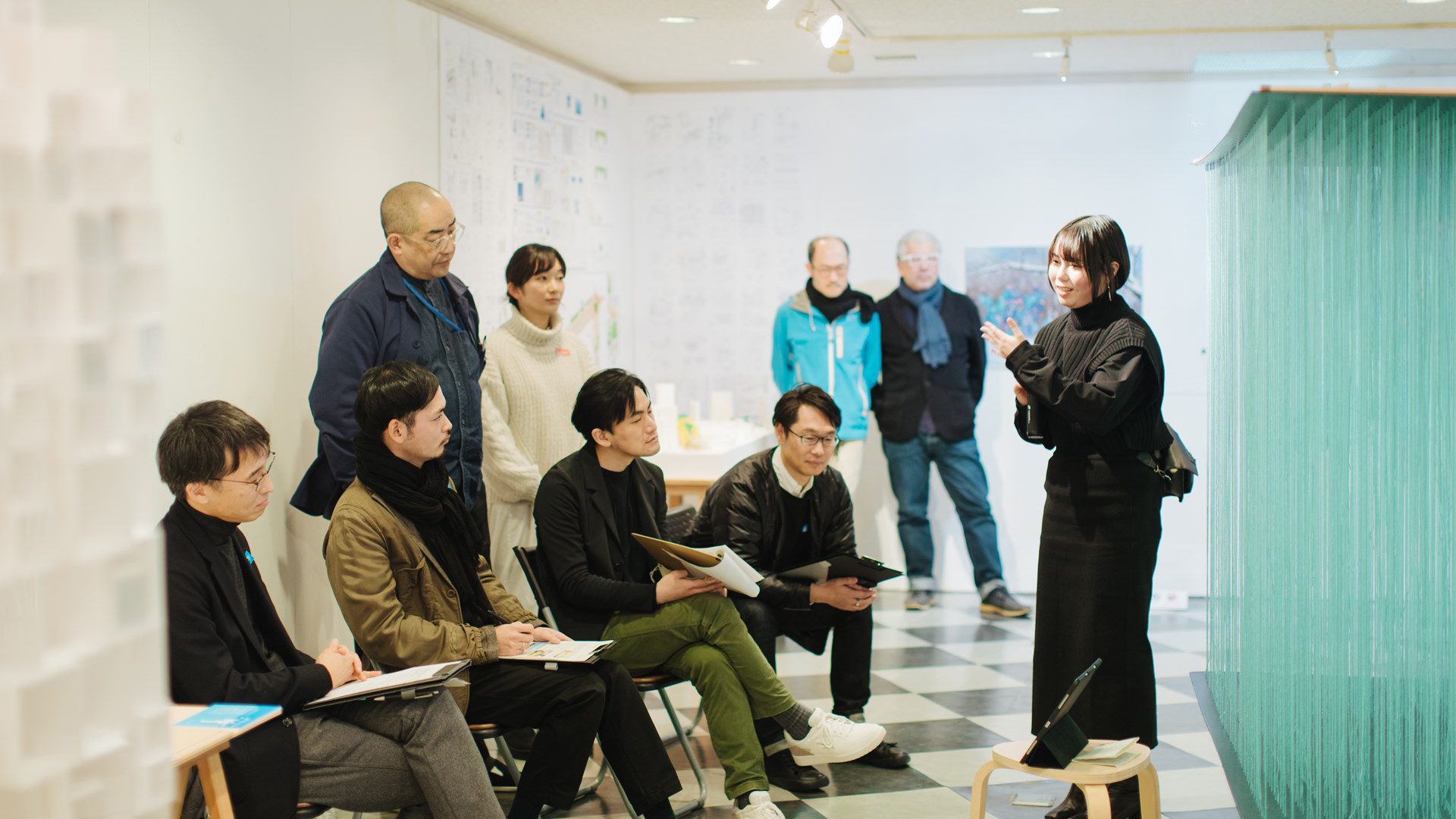
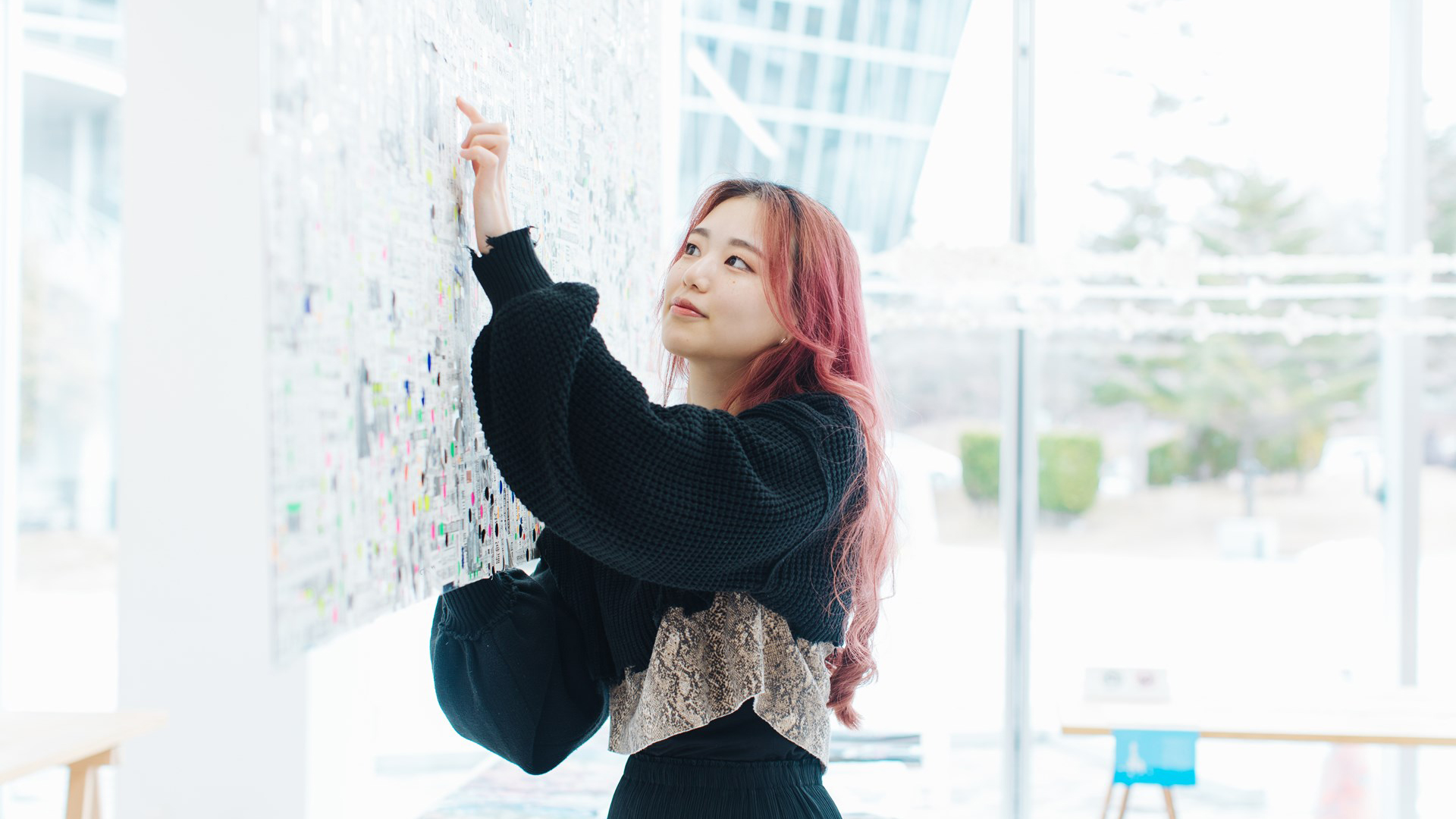
The Department of Value-Creating Design seeks to invent new values for society through designing information and environments. Based on observations of changing sociocultural conditions, students examine designs in social contexts to address issues at both local and global levels. Through coursework, students develop critical thinking and logical expression by learning cutting-edge technologies and appreciating traditional skills.
School of Food Industrial Sciences
The MYU School of Food Industrial Sciences has two departments, the Department of Integrative Studies of Plant and Animal Production and the Department of Food Science and Business.
Department of Integrative Studies of Plant and Animal Production
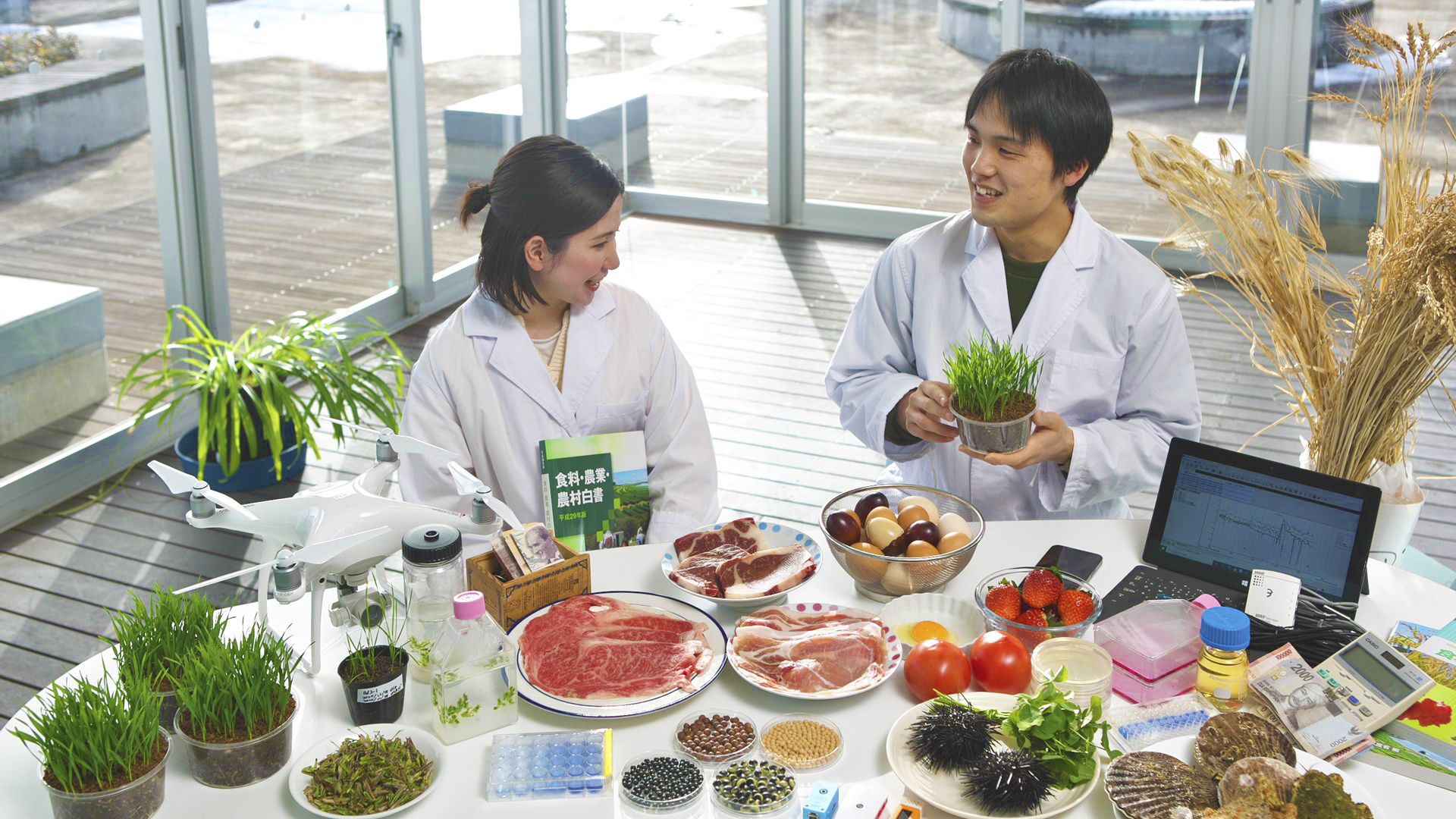
Today, the agricultural industry is facing a revolutionary moment. As Sustainable Development Goals (SDGs) become central in society, agriculture, the most essential industry for our lives and directly related to the environment, is getting more attention throughout the world. Responding to social demands, the Department of Integrative Studies of Plants and Animal Production offers various classes related to bioscience, agriculture, aquaculture, animal production science, informatics of cultivation environment utilizing IoT and AI, as well as food production business. Studying food production and developing a broad knowledge of these various critical fields, students will develop strong abilities to innovate in agriculture and food business. The uniqueness of the department lies in the comprehensive yet flexible curricula that meet today's rapidly changing social demands: engaging in interdisciplinary studies and research, as well as producing food materials for the societies of today and tomorrow. In addition to classes on food production and industry, students will be given chances to experience cutting-edge information technologies, fundamental sciences, and further subjects in business fields to revolutionize our food cultures.
Department of Food Science and Business
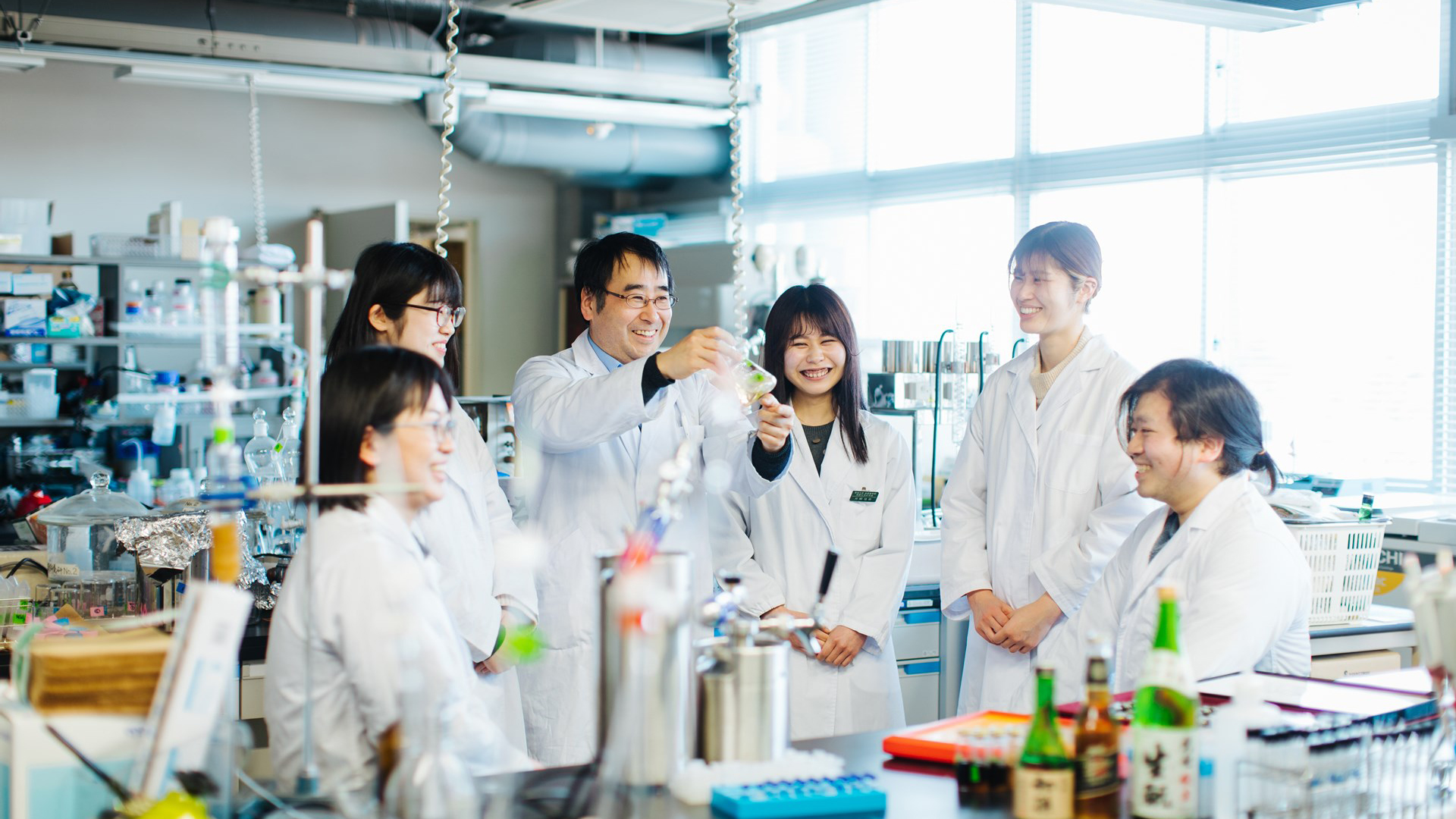
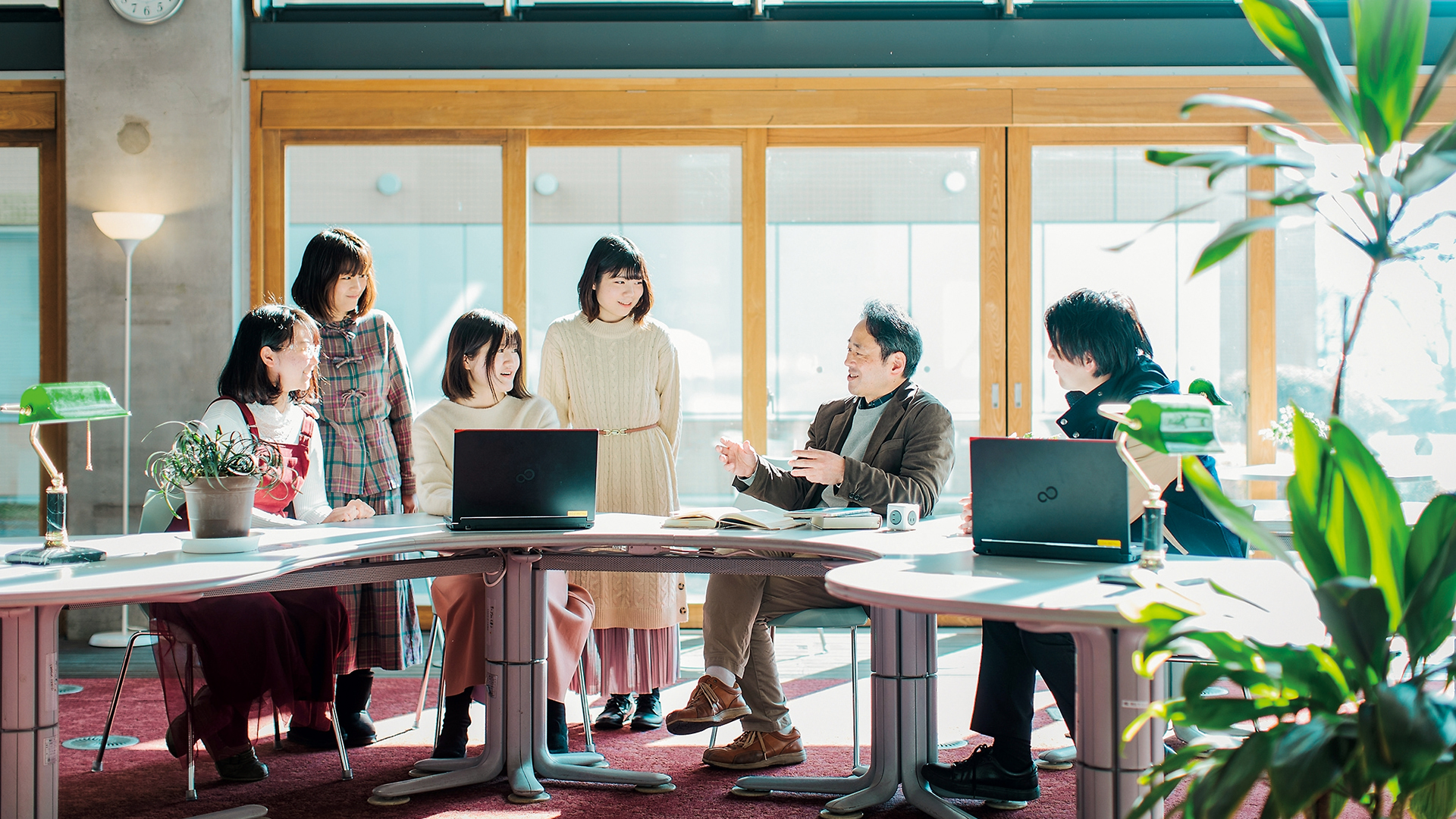
“Eating” is closely related not only to the maintenance of human life but also to enhancement of life. The two courses of study in this department offer systematic education related to the production and processing of food (Food Science Course) or to the business side of food science (Food Business Course). The course in Food Science examines the practical science behind food production and processing, for example, the microbiology involved in the production of sake, miso, natto and other food products. The Food Business Course explores the equally important utilization of this knowledge through logistics, marketing, and corporate strategy.
About the Graduate School of Nursing
About the Graduate School of Project Design
About the Graduate School of Food, Agricultural and Environmental Sciences
Welcome to CIEOS!
The Center for International Exchange and Overseas Students is the gateway for MYU’s international engagement.
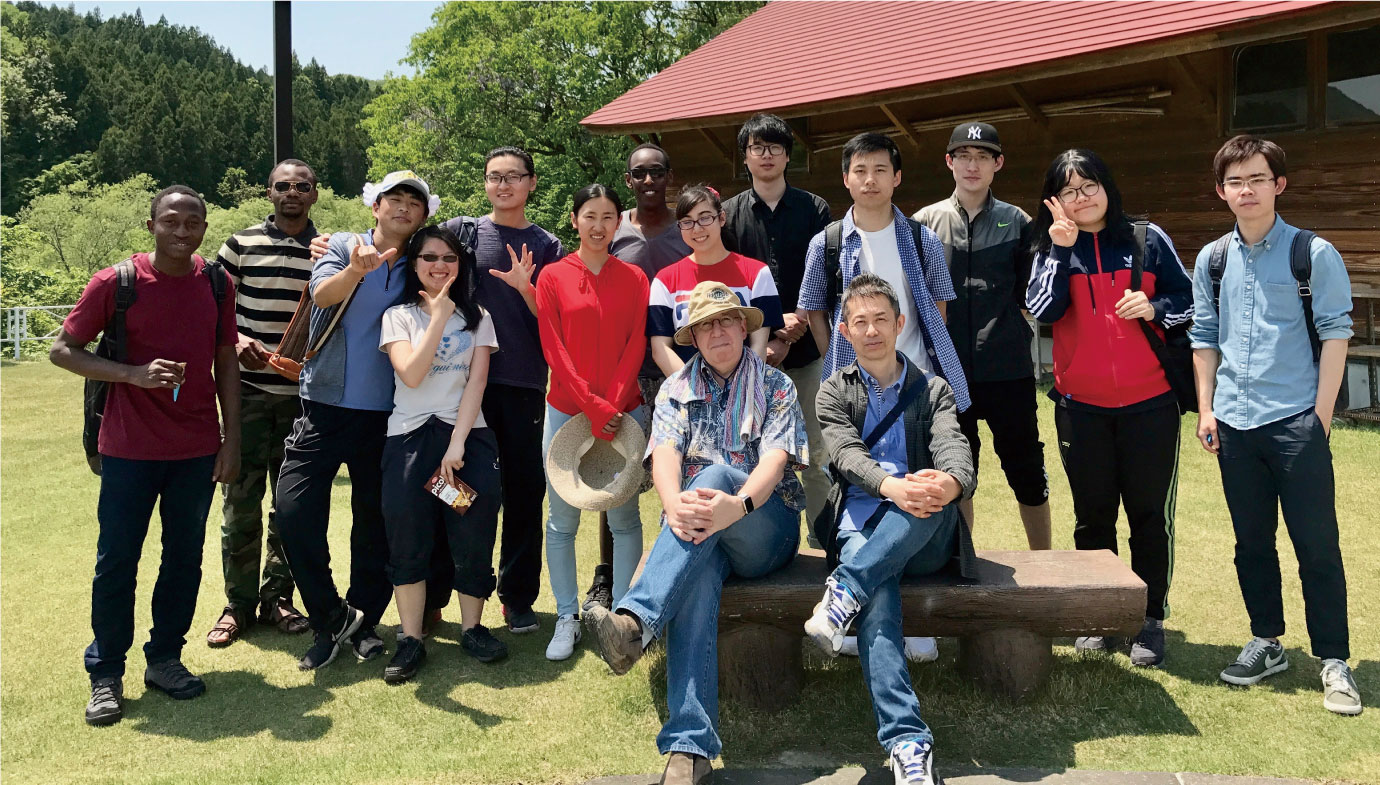
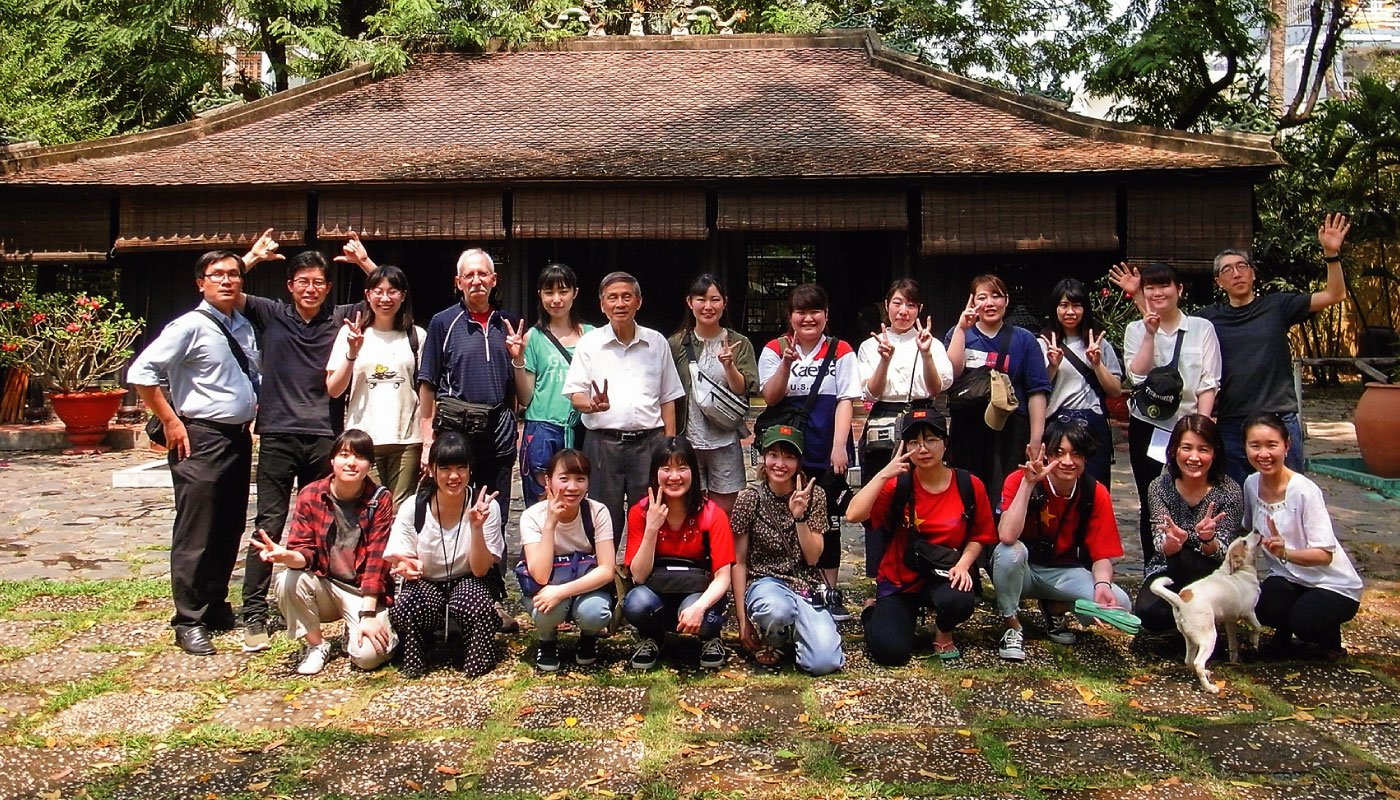
“PUSH”, “PULL” and “GROW” are our three essential tactics to promote global connection for both MYU-students and faculty. As an institution, we seek to provide a “PUSH” and send students and/or faculty abroad. Equally important for CIEOS is the “PULL,” inviting international students and scholars to our campus and encouraging our students to bring back overseas experiences into the university. These are just part of effort to “GROW,” to develop international understandings and cultural sensitivity for all MYU-community members.
CIEOS designs overseas programs for a variety of students in order to provide the best opportunities for personal growth and academic development. The center also facilitates MYU-faculty members’ efforts to share their research activities overseas and to insure the successful completion of their research projects involving international collaboration.
MYU’s international network

At Center for International Exchange and Overseas Students (CIEOS), we focus on nurturing students who stand out and can excel on the global stage. We cultivate their "creativity" so they can thrive in various international settings. Creativity involves generating new ideas and solutions, adapting flexibly to different environments and cultures, and fostering innovative thinking. Through study abroad programs, overseas camps, and global workshops, students face diverse challenges, enhancing their problem-solving skills and creativity. CIEOS supports students in developing their own ideas, achieving personal growth, and demonstrating leadership.
In today's social media-driven world, there is a trend towards less verbal communication, which is a concern as it indicates a decline in "verbalization skills." Verbalization skills refer to the ability to articulate images and thoughts in one's mind into clear verbal expression. Simply having ideas isn't enough; they need to be communicated to others. Verbalization skills are indispensable for every student, originating from diverse backgrounds, as they navigate the journey of dismantling personal barriers, assimilating external information, processing it, participating in discussions, making swift decisions, and communicating effectively. This proficiency is crucial for both personal and professional thriving, benefiting not only the individuals themselves but also contributing to the well-being of others. Particularly in fields like debates, quick decision-making, and information sharing, verbalization skills are essential. By refining this skill, students can clearly convey their thoughts and knowledge, fostering smooth communication with others. Through study abroad programs, overseas camps, and domestic global workshops, we promote the improvement of verbalization skills, preparing students for success in the global society.
CIEOS is dedicated to helping students unleash their full potential and succeed in the international community.
Hiroaki Sone
Student Overseas Programs
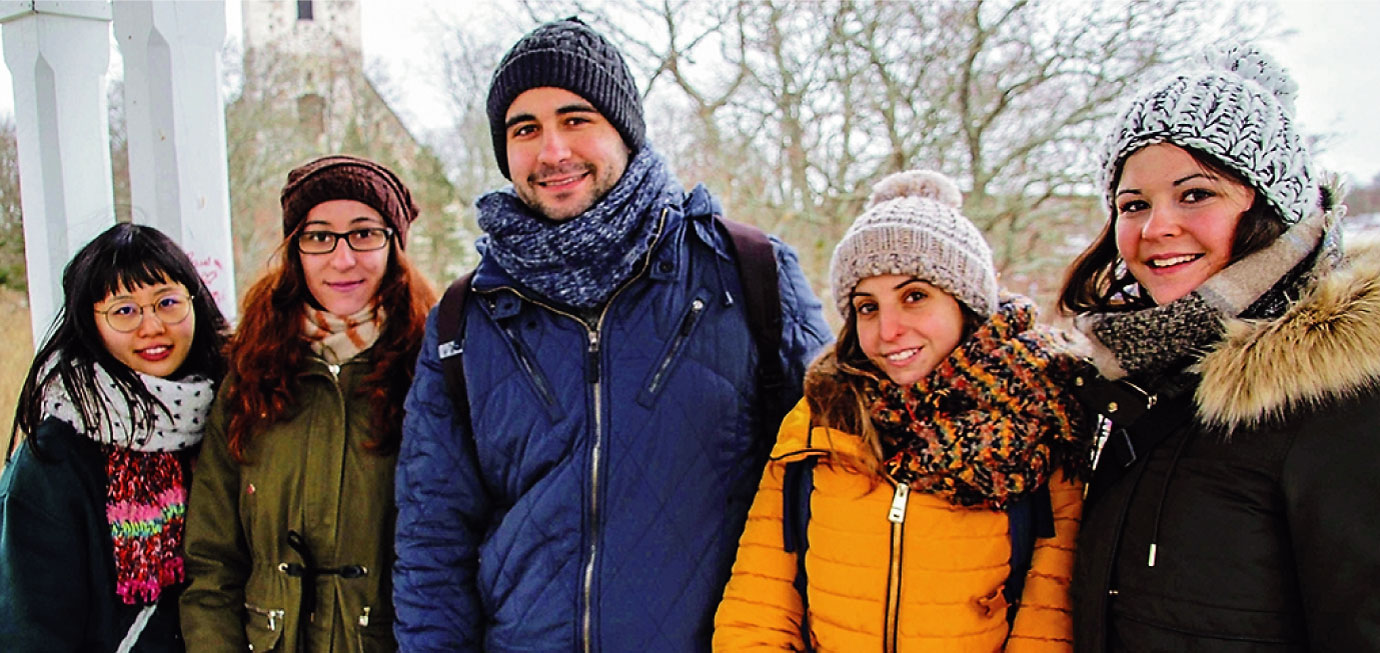
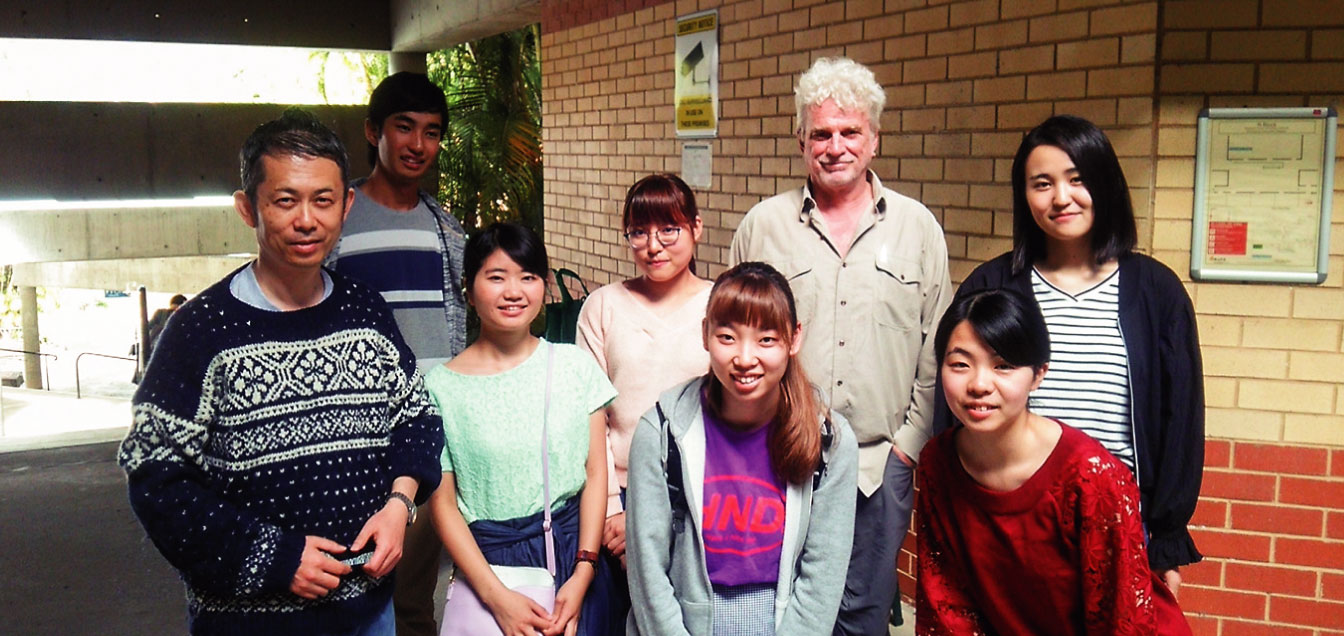
Study abroad program
This program is a relatively long-term study abroad program, lasting from one semester to a full academic year. CIEOS provides either upper-level credits or professional program credits with our partner universities such as University of Arkansas-Fort Smith in the US and Turku University of Applied Sciences in Finland. Students can transfer credits back to MYU with your academic adviser’s agreement. The best part of the program, though, is the chance to stretch your limits by living in a new culture and gaining new perspectives on your academic discipline!!
Short term educational program
Where will you go? CIEOS offers a two-week educational program in Australia with the cooperation of Southern Cross University. Learning English and experiencing Australian life are the essential elements of this program. Students also visit local businesses and practice problem-solving skills using the English language.
MIYAGI UNIVERISTY CAMPUSES
Environment is a priority at Miyagi University. We believe that healthy minds, creative thought and the ability to turn those thoughts into positive action are nurtured by one's environment; thus our two campuses have been designed to meet this end. Within walking distance from the Miyagi Prefectural Public Library, Taiwa Campus is an aesthetic fusion of a wooded natural environment and sophisticated contemporary architecture. To the south is Taihaku Campus which harmonizes rural landscape with cutting edge academic facilities. Both campuses are strategically located within urban center limits yet easily accessible to surrounding rural communities so as to ensure that students and staff are connected to both urban and rural communities throughout Miyagi.
Taiwa Campus
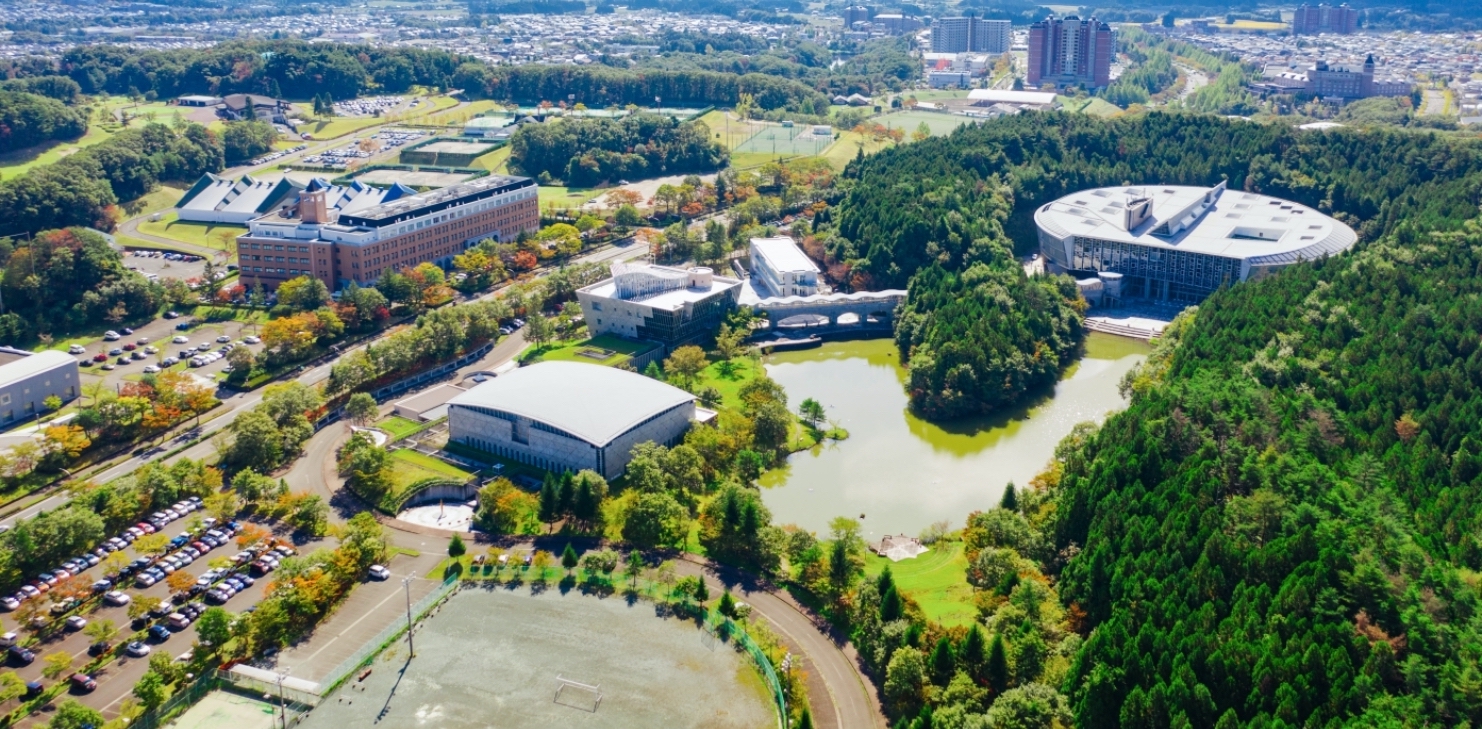
Administrative Headquarters
School of Nursing
School of Project Design
Graduate School of Nursing
Graduate School of Project Design
Miyagi University 1-1 Gakuen, Taiwa-cho, Kurokawagun Miyagi Prefecture, Japan 981-3298
Taihaku Campus
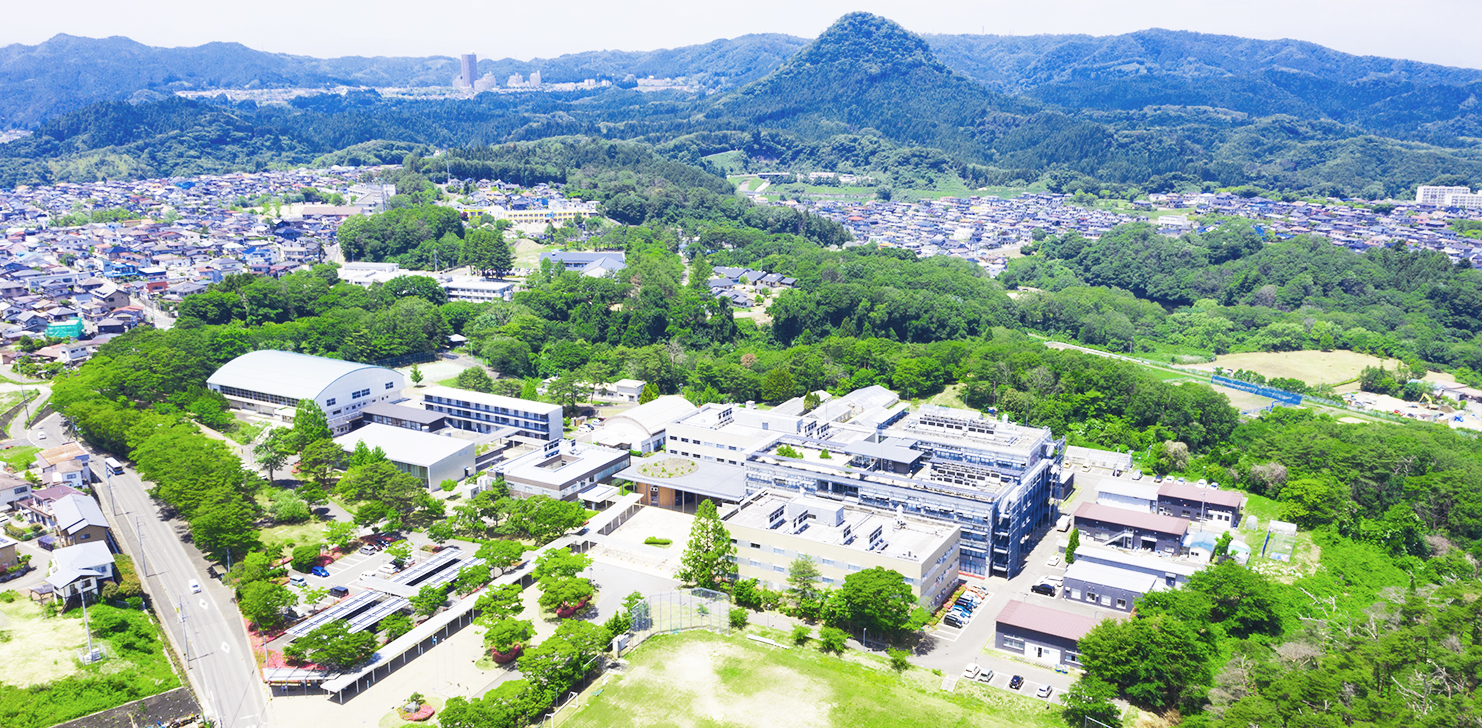
School of Food Industrial Sciences
About the Graduate School of Food, Agricultural and Environmental Sciences
Miyagi University 2-2-1 Hatatate, Taihaku-ku, Sendai City Miyagi Prefecture, Japan Miyagi Prefecture, Japan 982-0215


